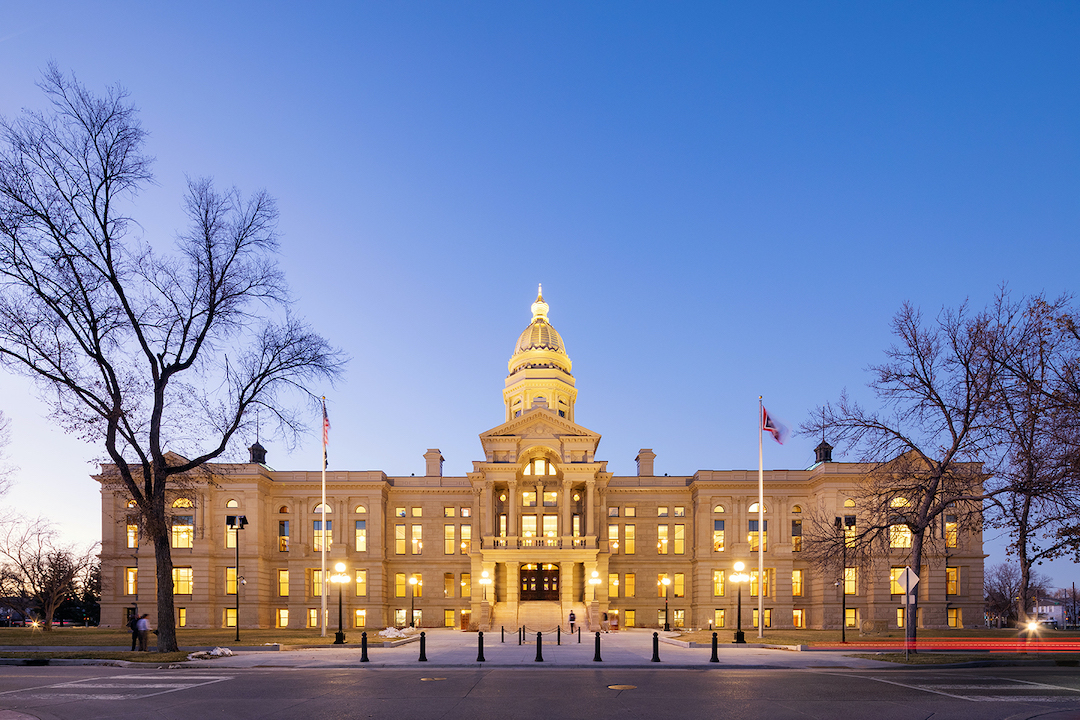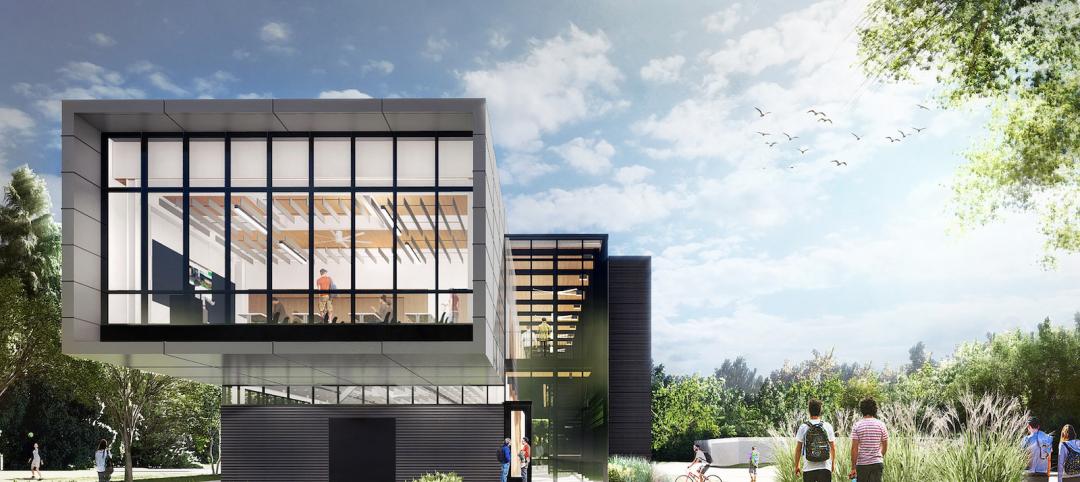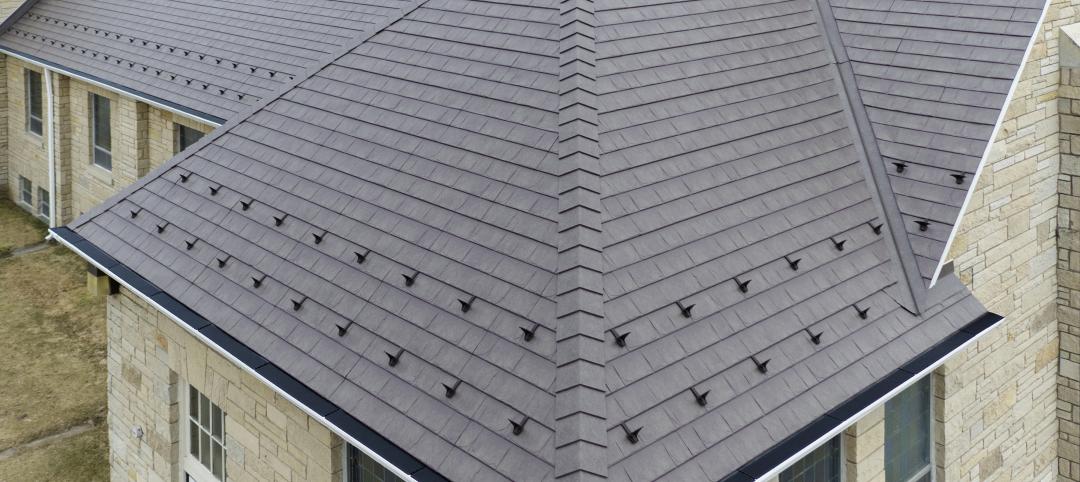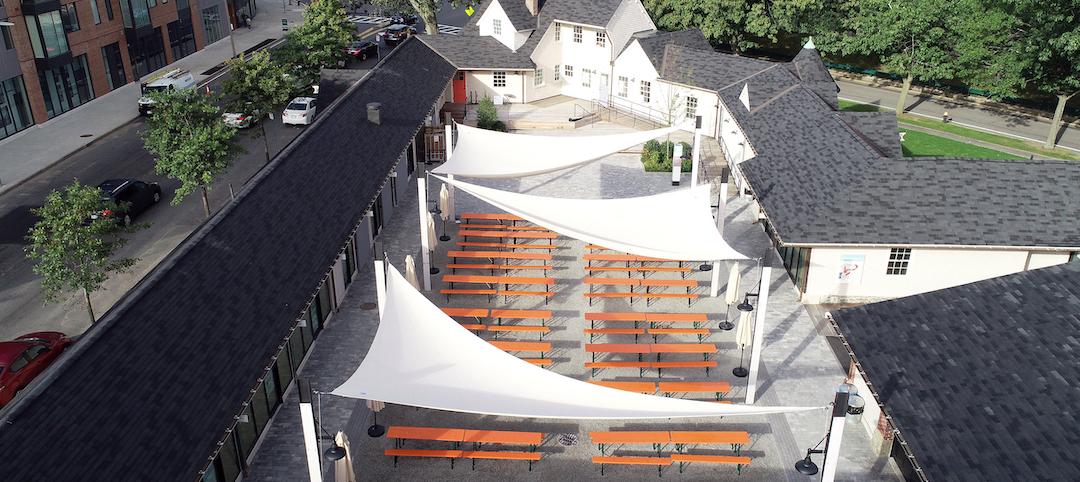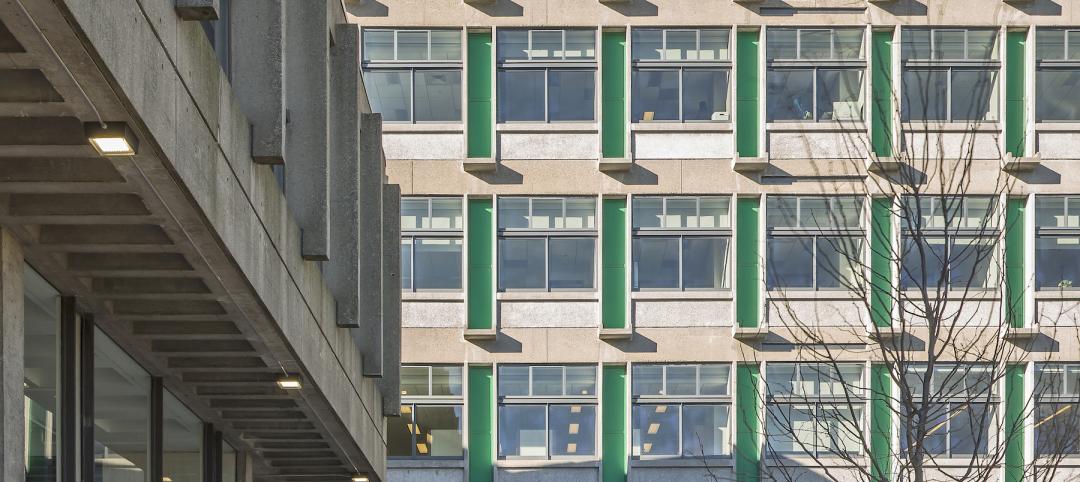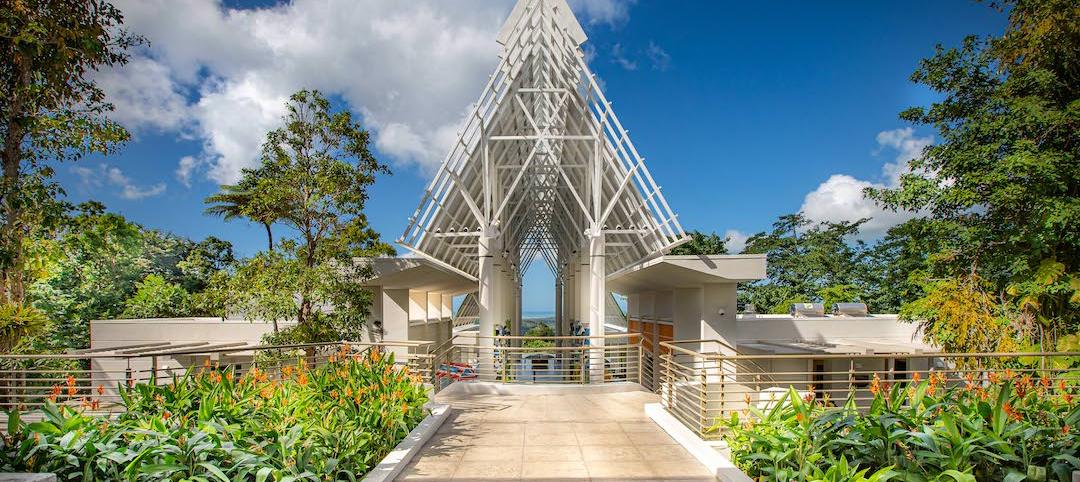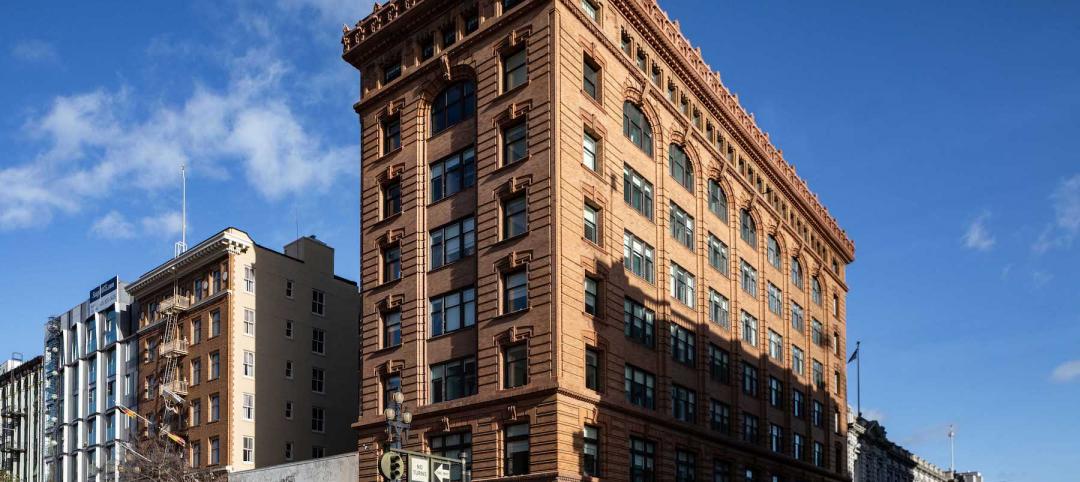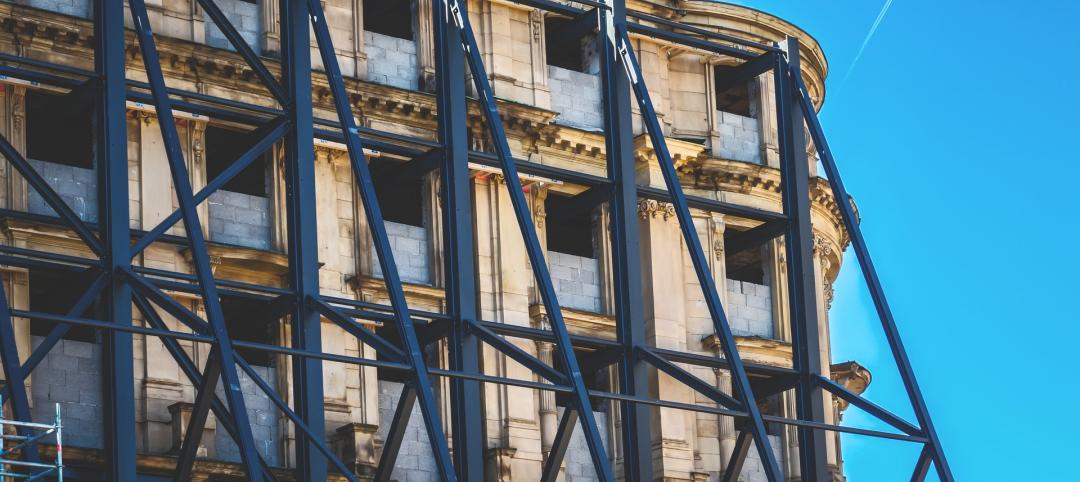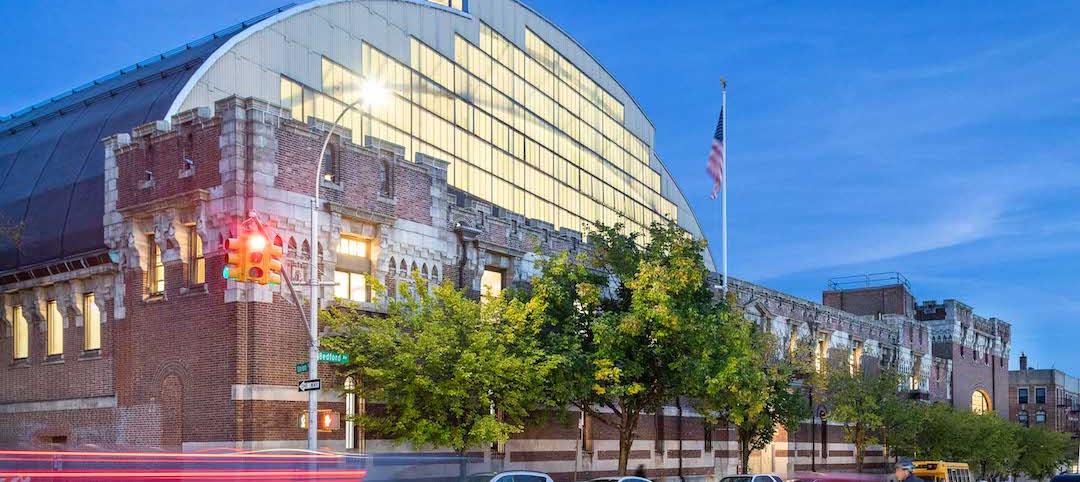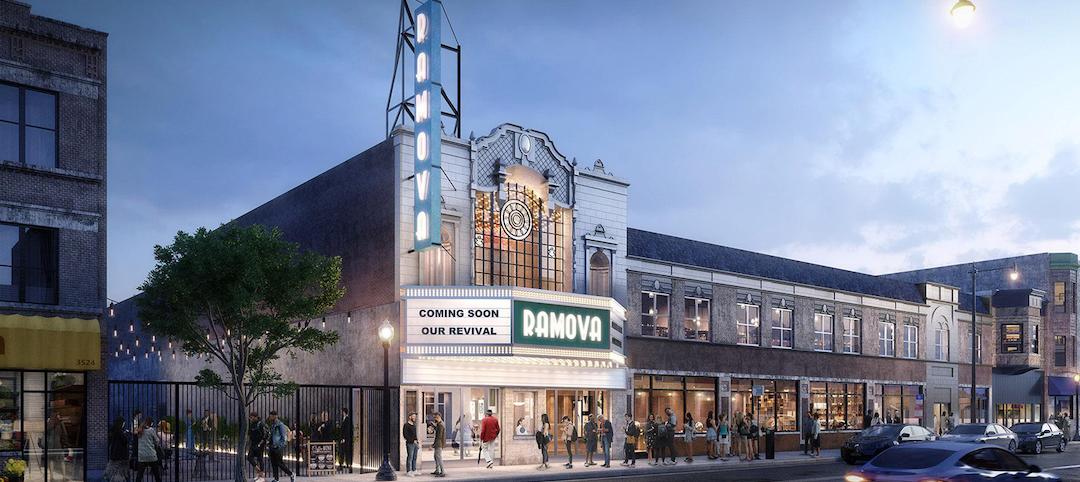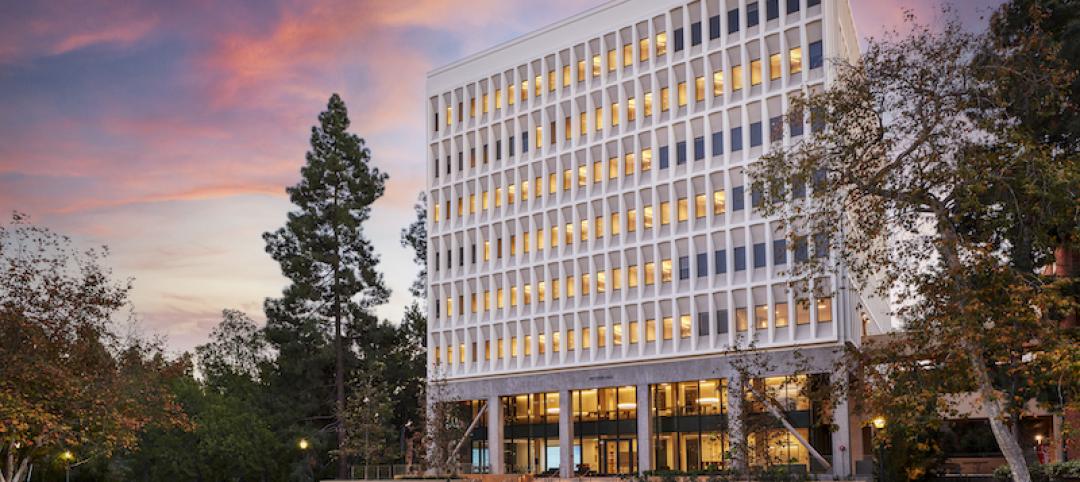Originally built in 1886, the Wyoming Capitol Square has recently undergone a renovation project of the 129,539-sf Historic State Capitol, the 360,862-sf Herschler Office Building, and an underground connector gallery that serves as a tunnel for the Capitol Square.
The $300 million project replaced outdated building systems, added critical life safety infrastructure, and addressed public space needs, especially for larger meeting rooms. The Herschler Building was remodeled and expanded by 56,000 sf to house state agencies and elected officials. The atrium on the north side of the building was removed to improve and restore views to the Capitol.
The Capitol Extension, a below-grade building that connects the Capitol to the Herschler Building, has been expanded by 28,000 sf to accommodate public space needs that could not be met in the Capitol. These spaces include large public meeting rooms, a 238-seat auditorium, a visitor’s center, and a student learning center.
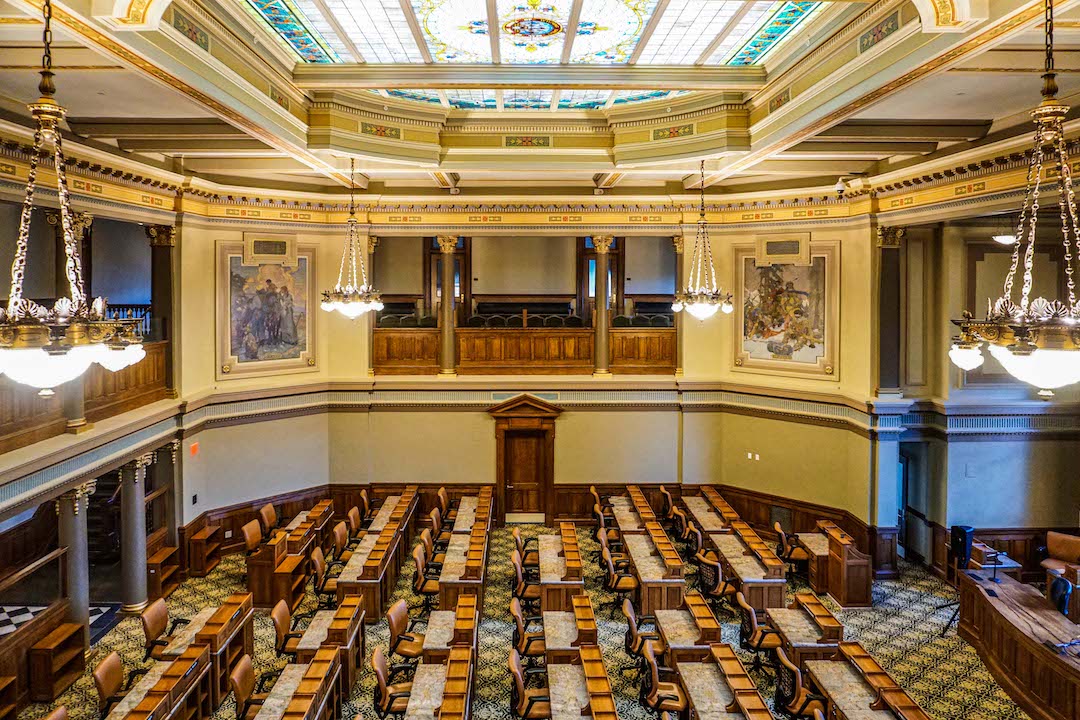 Photo: Dan Schwalm Photography.
Photo: Dan Schwalm Photography.
A new below-grade utility plant, which serves five state buildings, was also included to replace the aging central utility plant originally located in the connector. In order to move the MEP systems below grade, existing rubble, masonry, and concrete footings needed to be repaired. The build team coordinated and installed over 600 micropyles with shotcrete foundations to stabilize existing foundations and allow MEP systems to run below footings without destabilizing them.
The project’s attention to detail sets it apart from many other renovation and restoration efforts. Many small details were restored and recreated by hand.
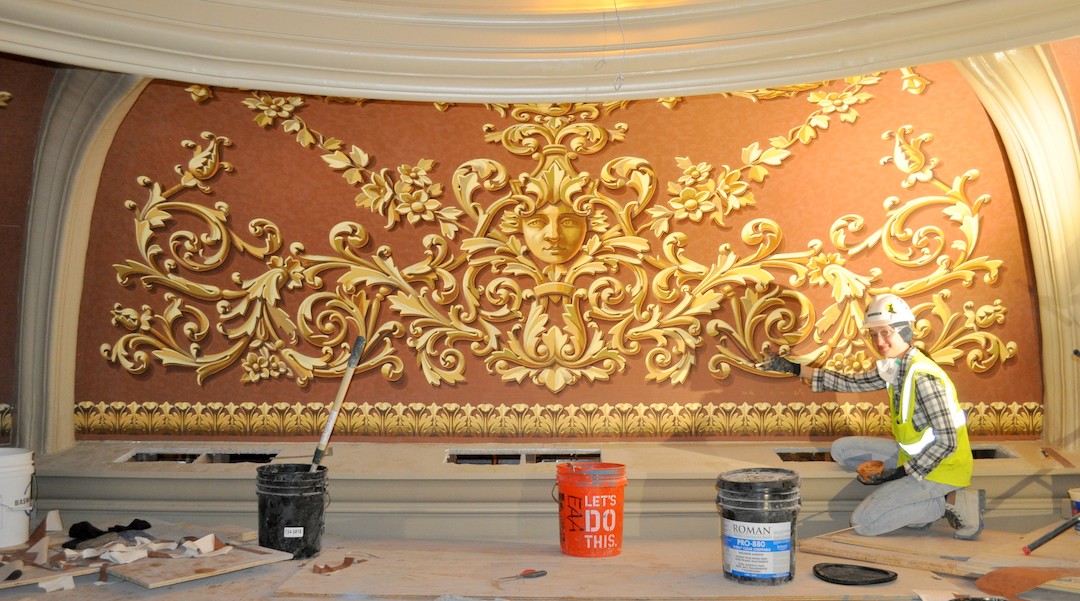
For example, previous restoration efforts painted over many decorative paintings and details within the building. The build team wanted to restore these details to their previous luster. This meant removing the paint layer by layer to expose the original decorative paint schemes and colors, and then recreating and restoring them. An original painting at the top Capitol Rotunda (above) was slowly revealed and then hand painted to recreate the original work.
Murals that had previously been painted over and forgotten about were rediscovered on six vault doors. After being restored to their original state, the murals became a highlight of the project as they were not previously documented and had not been seen by the public for decades. Other interior efforts included restoring original marble floors and elaborate woodwork throughout the building.
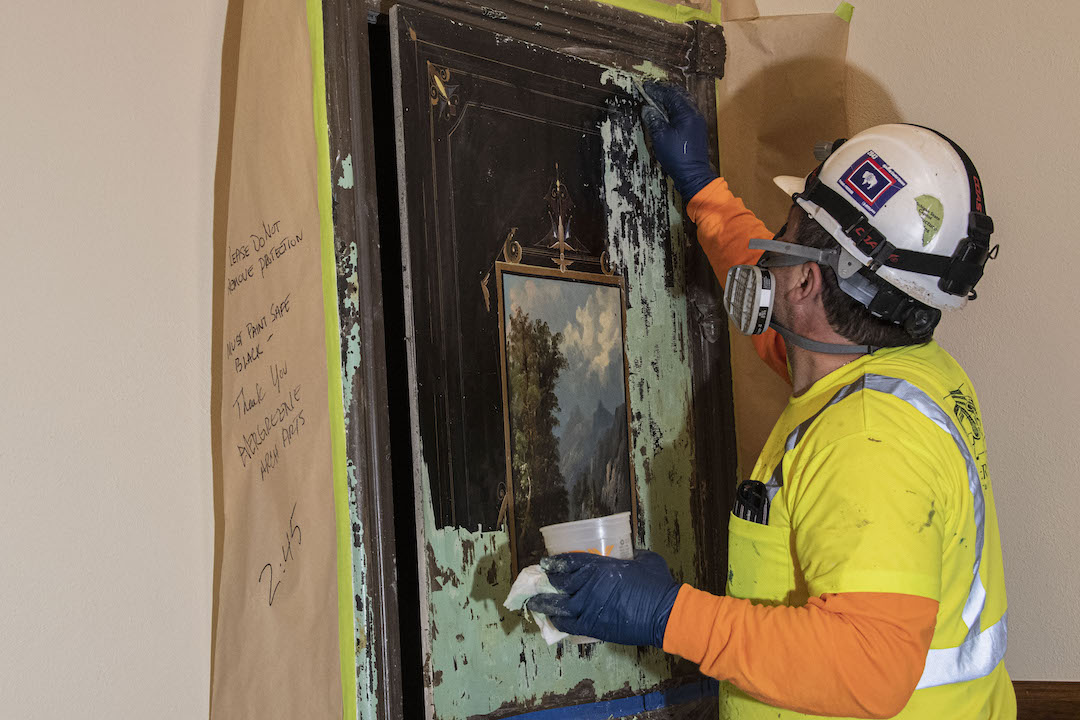 Photo: Girt Communications.
Photo: Girt Communications.
The exterior of the building also required meticulous restoration efforts. The Capitol dome was regilded in gold while hand carved stone elements that had been deteriorated by weather over the last 100+ years were recreated by hand. The replacement and restoration of the original sandstone required the reopening of the original quarry where the stone was mined in Rawlins, Wyo. The quarry had been closed for over 100 years but reopening it allowed the build team to get the exact same stone as was used in the original construction.
Photo: Girt Communications.
The building’s original architect created four niches in the Capitol Rotunda that were meant to be adorned by statues, but the vision never came to fruition. The project sought to change that. Delissalde, a sculptor, was commissioned to create four statues to place in these niches and complete the original vision of the architect from 130 years ago.
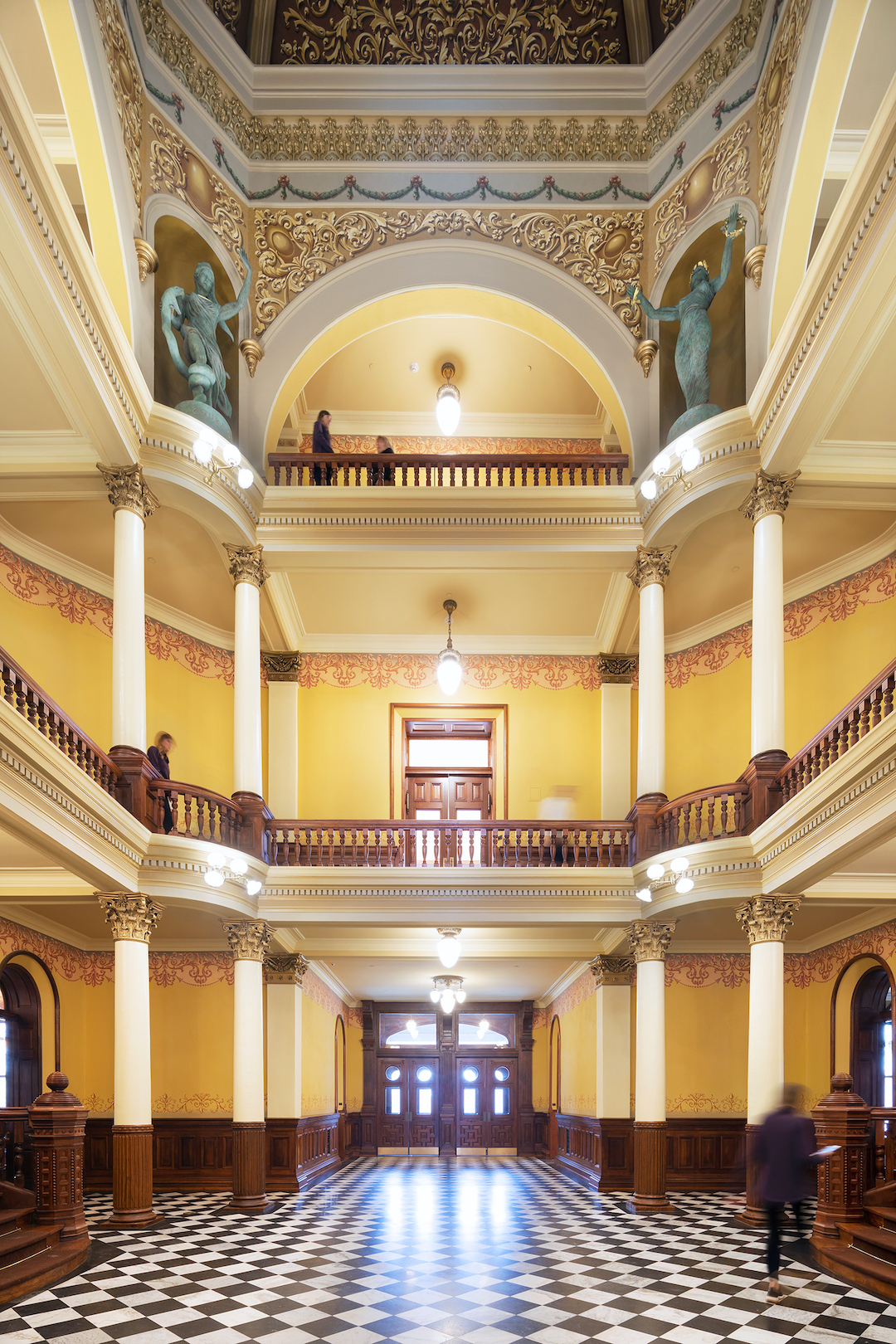 Photo: Dan Schwalm Photography.
Photo: Dan Schwalm Photography.
The project not only needed to accommodate a large construction crew (over 3,900 people were employed to work on various components over the four-year project), but also over 300 state employees that worked on-site in the Herschler Building. The Herschler project was phased in a way that allowed for half of the building to remain occupied while the other have was renovated and the expansion was built. When the first phase was completed, the employees were moved to the new half while construction commenced on the second phase.
The Wyoming Capitol Square project is believed to be the largest of its kind in Wyoming history.
PROJECT INFORMATION: Size 490,401 sf Construction start and finish April 2016 to July 2019 Cost $252,600,000 Delivery method CM/Risk, negotiated
BUILDING TEAM: Submitting firm JE Dunn Construction Owner/Developer State of Wyoming Architect HDR Architecture SE Silman MEP Loring Engineering GC JE Dunn Construction Program Manager MOCA Systems
Related Stories
Higher Education | Mar 1, 2022
SRG Partnership designs a nautically inspired space for maritime science
A community college in Oregon has begun construction on a new building devoted to maritime science. With it, the school hopes to solidify its position as a major industrial and marine technology center in the Pacific Northwest.
Sponsored | BD+C University Course | Feb 17, 2022
Metal roofing trends
New ideas in design and constructability are radically changing how metal systems are used as roofing for commercial and institutional buildings. Behind the investment in these new kinds of expressions and construction approaches is a growing interest in improved performance and reduced environmental impact. Metal roofing systems can cut cooling and heating loads significantly, according to the EPA.
Reconstruction & Renovation | Jan 26, 2022
Bruner/Cott Architects revives a historic horse and bicycle racing complex
The original complex was built in 1899.
Sponsored | Reconstruction & Renovation | Jan 25, 2022
Concrete buildings: Effective solutions for restorations and major repairs
Architectural concrete as we know it today was invented in the 19th century. It reached new heights in the U.S. after World War II when mid-century modernism was in vogue, following in the footsteps of a European aesthetic that expressed structure and permanent surfaces through this exposed material. Concrete was treated as a monolithic miracle, waterproof and structurally and visually versatile.
Reconstruction & Renovation | Jan 24, 2022
Marvel leads restoration and redesign of El Yunque Visitors’ Center
The project cost $18.1 million.
Adaptive Reuse | Dec 16, 2021
An adaptive reuse of a historic building in San Francisco was worth the wait
A five-year-long project included extensive restoration.
Giants 400 | Dec 5, 2021
2021 Reconstruction Sector Giants: Top architecture, engineering, and construction firms in the U.S. building reconstruction and renovation sector
STO Building Group, Alfa Tech Consulting Engineers, Gensler, and Stantec top BD+C's rankings of the nation's largest reconstruction sector architecture, engineering, and construction firms, as reported in the 2021 Giants 400 Report.
Reconstruction & Renovation | Nov 15, 2021
Marvel transforms the historic Bedford Armory into a community hub
The project is located in Crown Heights, Brooklyn.
Reconstruction & Renovation | Oct 13, 2021
Restoration of Ramova Theater in Chicago’s Bridgeport Neighborhood begins
The building was originally built in 1929.
University Buildings | Jul 12, 2021
UCLA building completes renovations for enhanced seismic, energy, and curriculum requirements
CO Architects designed the project.


